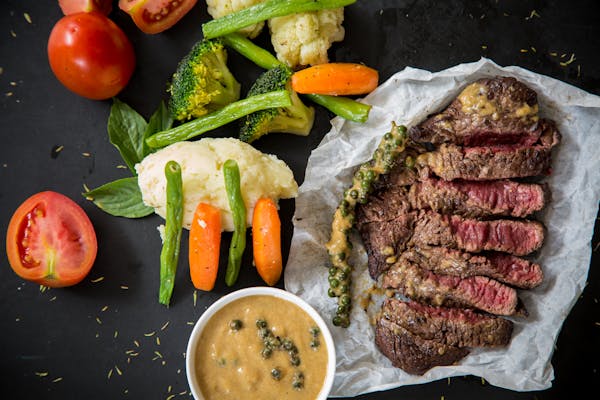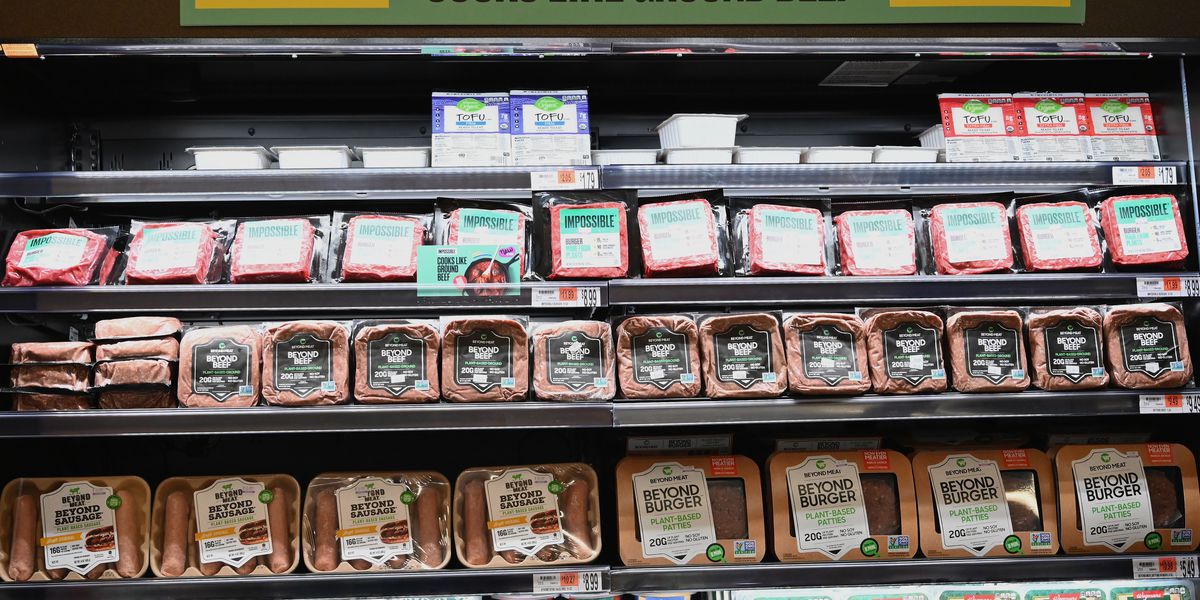Quotes from Vegconomist, June 20, 2024
An academic team at the University of York and the FixOurFood initiative jointly commissioned a study by the Co-op supermarket group that predicted a significant shift towards alternative proteins by the middle of the 21st century in UK dietary patterns.
The study forecasts a notable increase in the demand for alternative protein sources, aligning with a surge in health consciousness and the growing trend of flexitarian diets. Urban agriculture is expected to expand, potentially facilitating the production of lab-grown meat and marine edibles. Concurrently, obscure components like azolla (water ferns) might emerge as common elements in a variety of dishes, ranging from burgers to noodles. Demonstrating these prospects, Co-op has developed a collection of artificial intelligence-generated visuals depicting potential food items of the future.
As we look toward the future, it’s clear that climate change will have a profound impact on agriculture. With temperatures on the rise, the agricultural landscape of regions such as the south of England is expected to undergo significant changes. Crops that are typically associated with warmer climates, like avocados and olives, may soon find a new home in these areas. This shift could transform the local economy and dietary habits, introducing a new variety of produce to British tables.

Moreover, this change presents an opportunity to revisit and revitalize traditional food preservation techniques. Pickling, a method steeped in history, could experience a renaissance as a sustainable practice in the fight against food waste. This technique not only extends the shelf life of produce but also offers a way to enjoy the flavors of seasonal fruits and vegetables year-round. As British citizens become increasingly conscious of their environmental impact, embracing such methods could play a crucial role in reducing the carbon footprint associated with food consumption and waste.
In essence, the coming years may bring about a fusion of old and new — where the bounty of the earth meets the wisdom of past generations. This synergy of cultivation and conservation could lead to a more sustainable and flavorful future for all. The prospect of growing exotic produce locally and preserving it through time-honored methods is not just a nod to the past, but a step forward in building a resilient food system for the future.
Over the past three decades, remarkable advancements have been made in the field of sustainable agriculture, surpassing what many could have envisioned in 1994. Bob Doherty, who leads FixOurFood and holds a deanship at the University of York’s School for Business and Society, remarked on the transformative developments in food production. Innovations such as cultured meat and vertical agriculture are poised to fundamentally alter our dietary habits.
The study arrives concurrently with Co-op’s release of its newest Responsible Retailing report. This report reveals a growing trend among consumers, with 72% expressing heightened awareness and concern for ethically and sustainably sourced food products in the recent past. Despite this increased awareness, there has been a notable shift in consumer behavior regarding spending. The proportion of consumers prepared to invest more in ethical and sustainable goods has seen a decline, dropping from 62% in 1994 to 54% in 2024. This change may be indicative of the broader economic challenges faced today.

A significant majority of consumers, accounting for 88%, report an increase in their consumption of fruits and vegetables. Similarly, a nearly equal percentage, 87%, indicate a shift towards healthier food selections than in the past. Contrastingly, in 1994, there was a prevalent skepticism regarding the transparency and truthfulness of product labeling. However, today, nearly half of the consumers, 47%, feel confident in making environmentally friendly decisions guided by the information provided on product labels.
In the realm of the food sector, significant strides have been made, yet consumers justifiably expect further actions from us, grounded in transparency and ethical principles,” expressed Cathryn Higgs, the leader of Ethics, Sustainability, and Policy at Co-op. “Co-op stands firm in its dedication to offer our members and patrons food choices that are both responsibly procured and pioneering in nature.”









